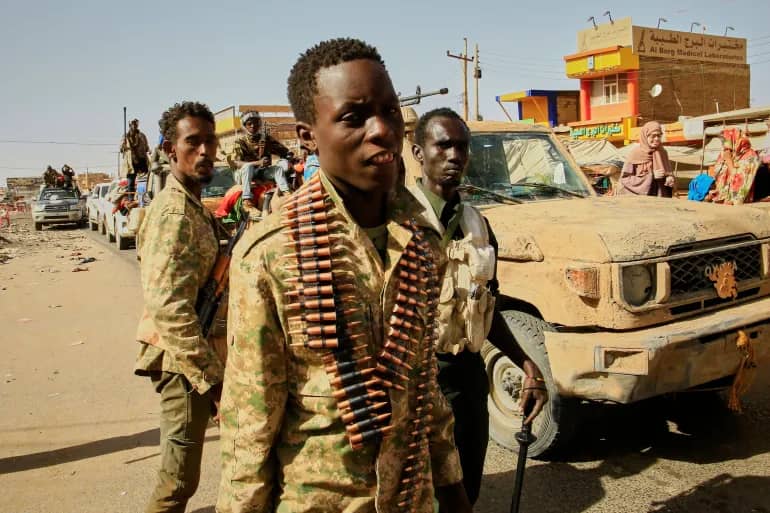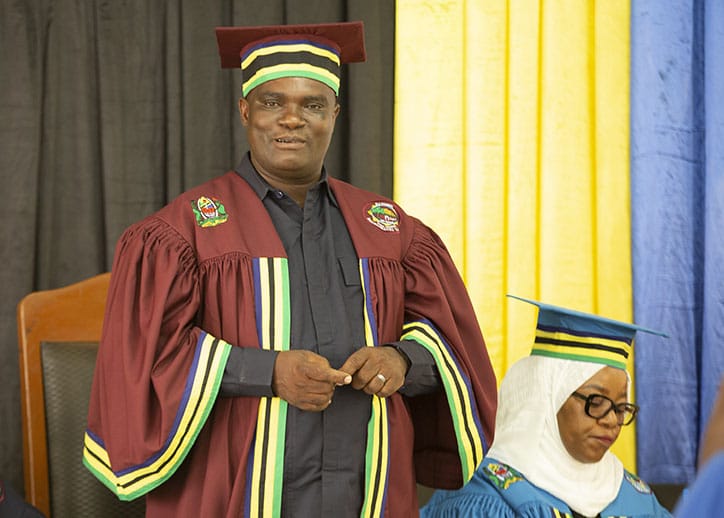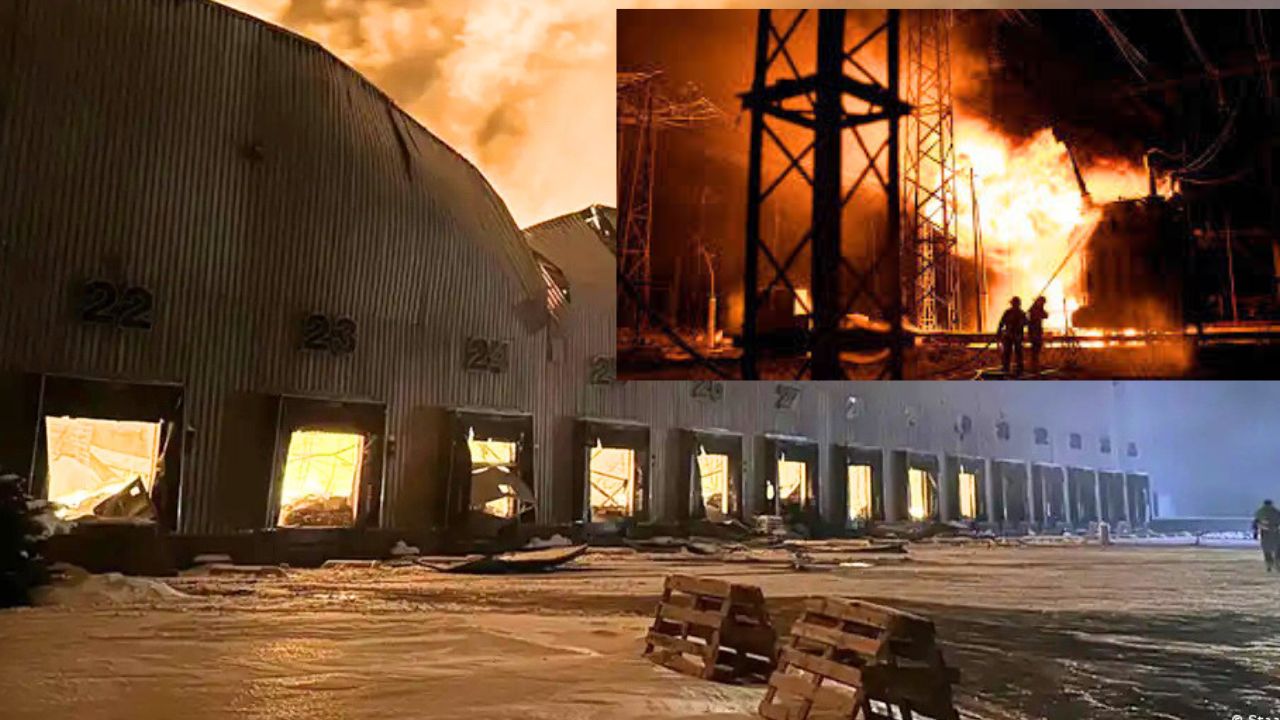By Moses Ntandu, Dar es Salaam .
The African continent needs a great awakening and a major intellectual revolution from the vast youth population to understand the agendas of Western nations, which aim to restore colonialism and exploit the natural resources of African countries.
This situation is evident in the ongoing instability affecting peace and security across many African nations, where certain countries are being targeted and destabilized so that aggressors may gain access to their resources.
The Republic of Sudan is among the nations that have been severely affected by this prolonged disruption of peace and security. There are powerful external forces working to destabilize the country so that it collapses, allowing these aggressors to exploit its natural resources. In this article, we will examine several issues and the prospects for peace and stability in Sudan.
Despite the presence of a strong transitional government that is actively engaged in development and nation-building, Sudan continues to face serious challenges—particularly from powerful foreign interests seeking to smuggle weapons and military forces into the country to destroy its peace.
According to reliable source of information that a soldier of fortune tells of lucrative contracts, the siege of El Fasher and training child fighters to ‘go and get killed’
For Colombian mercenaries hardened by decades of jungle warfare, Sudan’s conflict seemed slow at first.
“In Sudan, they spend the night sleeping they don’t even have security because everyone goes to bed,” said Carlos, one of hundreds of Colombians hired to fight in the African country. “Colombians are different – we are used to a different kind of war.”
So when Carlos and his comrades reached the front, they pressed on through the darkness, driving deeper into enemy territory. “And then there began to be much more fighting and many more deaths,” he said.
Carlos arrived in Sudan earlier this year (2025), almost two years into the country’s brutal civil war between the Sudanese army and the paramilitary Rapid Support Forces (RSF).
The conflict has plunged Sudan into one of the worst humanitarian nightmares in recent history according to UN officials: 150,000 people have been killed, women and girls have been abducted and raped and nearly 13 million have been forced to flee their homes, in the world’s worst displacement crisis.
About 260,000 people remain trapped in El Fasher, North Darfur’s capital and the army’s last major stronghold in the Darfur region, which has been under siege for more than 500 days. Aid has not entered the ravaged city for nearly 18 months and children have been reduced to eating locusts and animal feed.
It is there that the Colombians, fighting for the RSF, have now been dispatched. “War is a business,” said Carlos.
The mercenaries’ involvement first emerged last year, when an investigation by the Bogotá based outlet La Silla Vacía found that more than 300 former soldiers had been contracted to fight – prompting an unprecedented apology by Colombia’s foreign ministry.
But the Colombians’ role has gone beyond the battlefield: fighters have admitted to training Sudanese child soldiers and have been pictured operating in Zamzam, the largest displacement camp in Sudan. In April this year (2015), the RSF tore through Zamzam, killing between 300 and 1,500 people – the UN called it one of the worst massacres of the war.
Mohamed Khamis Douda, a spokesman for the camp in Darfur, recently said “We have witnessed with our own eyes a dual crime: the displacement of our people at the hands of the RSF militia, and now the occupation of the camp by foreign mercenaries.”
The United Arab Emirates long accused of arming and backing the RSF has been blamed for hiring the mercenaries, via private security firms. The UAE has consistently denied these allegations.
Unlike some Colombian whistleblowers who claim they were told they would be guarding oil facilities in the UAE, Carlos knew he was bound for war, though only that it was in Africa.
His journey began with medical examinations in Bogotá, where he signed a $2,600 a month contract. Afterwards he was flown via Europe to Ethiopia, and then to an Emirati military base in Bosaso, Somalia, he said. Later he was taken to Nyala in Sudan, a city now notorious as the hub for Colombian mercenaries.
Carlos, who requested anonymity to speak freely, admitted that his first task was training Sudanese recruits, most of whom were children.
“The camps had thousands of recruits, some adults, but mostly children lots and lots of children,” he said. “These are children who have never held a weapon. We taught them how to handle assault rifles and machine guns, RPGs. After that, they were sent to the front. We were training them to go and get killed.”
He describes training the children as “awful and crazy” but said that “unfortunately that’s how war is”. Carlos’s unit was eventually posted to the besieged El Fasher, the country’s worst battleground. RSF fighters have built a 20mile wall around the city’s boundaries, and executed those trying to flee.
Carlos shared photos and videos – some passed on by his comrades with La Silla Vacía and the Guardian, showing Colombian mercenaries in Sudan. One picture shows trainees lying prone on the ground, some holding rifles. Two teenagers pose for the camera, making a victory sign with their fingers.
In one video, a man can be seen shooting a machine gun through a hole in the wall of a ruined apartment. In a clip shared by a different Colombian mercenary, a man loads and fires a mortar at a location geolocated in the outskirts of El Fasher.
In another video, filmed amid heavy gunfire, mercenaries with thick Colombian accents discuss a colleague who appears to have been wounded.
“I don’t know if he’s dead, because we couldn’t see him,” one says in Spanish. “Who else is going to help get him out?”
The mercenary points to a group of Sudanese fighters milling around nearby. “You, you, you. You can help us here, support these men. We’re going to retreat quietly, to get this guy out,” he says, before the group carry a wounded man past houses peppered with bullet holes.
Colombia’s own decades-long civil conflict has created a surplus of experienced fighters, many of whom received training from the US army, and the country is believed to be one of the largest exporters of mercenaries.
“Colombia has more than a half-century of history of active conflict. Its soldiers have not only been trained very well, but have been in the field, in very difficult situations, and so are combat ready,” says Elizabeth Dickinson, senior analyst for Colombia at International Crisis Group.
Sean McFate, an expert on mercenaries, says the use of Colombian mercenaries escalated around the 2010s, when ex-combatants were paid to guard oil infrastructure in the UAE. Their role evolved during the war in Yemen. “The UAE sent a lot of Colombian mercenaries to go and kill the Houthi (rebels) and they were successful in that,” he says.
Since then, Colombian soldiers of fortune have appeared regularly in the headlines: in July 2021 18 Colombian gunmen were among the team who assassinated Haiti’s President Jovenel Moïse.
Colombian ex-military personnel have also fought in Iraq and Afghanistan and now Ukraine. In November of last year (2024), Colombia’s foreign minister said that approximately 500 of his countrymen had travelled to fight against Russian forces.
Carlos is one of those, having served two years with the Ukrainian troops. “Ukraine was becoming more complicated, there were more casualties, more enemy advances. So I left and took on this mercenary job in Africa instead,” he says. “I knew absolutely nothing about it, only that it was in Africa.”
McFate says mercenaries give countries “good plausible deniability”, in cases where they want to skirt international law or have a strategy of human rights violations. “When they get captured or killed, you disavow them,” he says.
The Colombian president, Gustavo Petro, has described mercenarism as a “trade in men turned into commodities to kill” and has pledged to ban the business. But former fighters often struggle to reintegrate into Colombian society, and the cash incentives they are offered mean the business is unlikely to end soon.
Both Dickinson and McFate argued that the problem also lay with Colombia’s military system: most professional soldiers are forced to retire around 40, with low pensions and few retraining options.
“If you enter at 18 and work 20 years, you’re not even 40 when you retire. You have 15, 20 years left of active duty time,” said Dickinson. “The support structure for the Colombian retired military is deficient, particularly compared to the offer that’s on the table from these organisations.”
But Dickinson also warns that the “ecosystem of private defence companies” is no longer limiting itself to retired soldiers. “Defence companies are increasingly recruiting those on active duty, from places where soldiers have a really hard time in difficult conditions,” said Dickinson. “They send WhatsApp pamphlets offering thousands of dollars a month.”
For the military, this is an “enormous loss”, she said. “The Colombian government trains them to a very high level – and then they are essentially stolen by the private defence industry.”
Carlos is one of those who left the armed forces after just over five years of service. He has also left Sudan, blaming issues with payment. He said 30 men quit alongside him, but “at the same time, flights with 30 more were arriving”.
Mercenaries almost disappeared from the world’s battlefields for most of the 20th century, but the business was growing fast again, said McFate. “It’s the world’s oldest profession,” he says. “We’re returning to something medieval, where the super-rich can become like superpowers.”
Carlos took a similarly dark view of his trade. “This isn’t an honest job; it’s not a legal job. But you go for money,” he said.
This situation really shows how the African continent is in the hunt to be used only as a place to collect resources and to conduct arms sales and commercial arenas.
There is every reason for African leaders to come up with an alternative way to confront these new methods of modern colonialism which are spreading very rapidly while a large number of young generation are being persuaded to have hatred for the governments of their countries and given Western agendas that aim to bring down the African continent while the main weapon used is the pretext of development, freedom of expression, democracy and human rights.
Where is really human-rights in killings of dozens of civilians as what happened in Sudan and those human-rights organisations are silent as if nothing is happening.
This thicket of good democratic governance and human rights must be cleared so that African youth realize that true democracy, human rights and good governance do not come by destroying the peace and security of our nations because without peace and security even all these claims are accepted as just stories and are only stagnation, misery and great distress.
Africa should wake up and learn from what has already happened and left scars, such as Libya and what is happening in Sudan currently.









